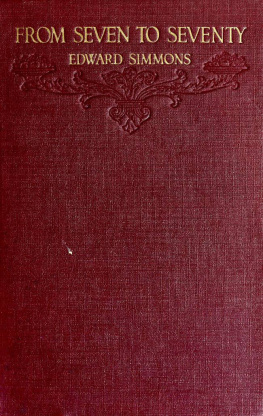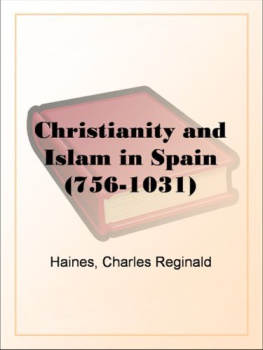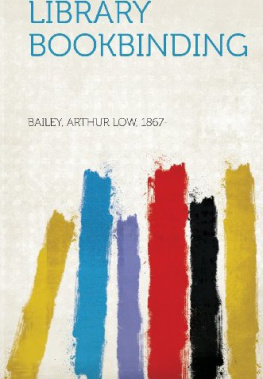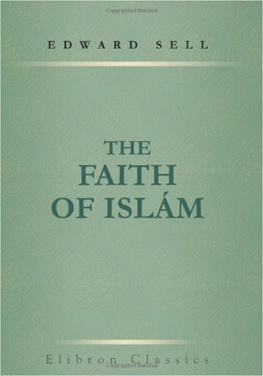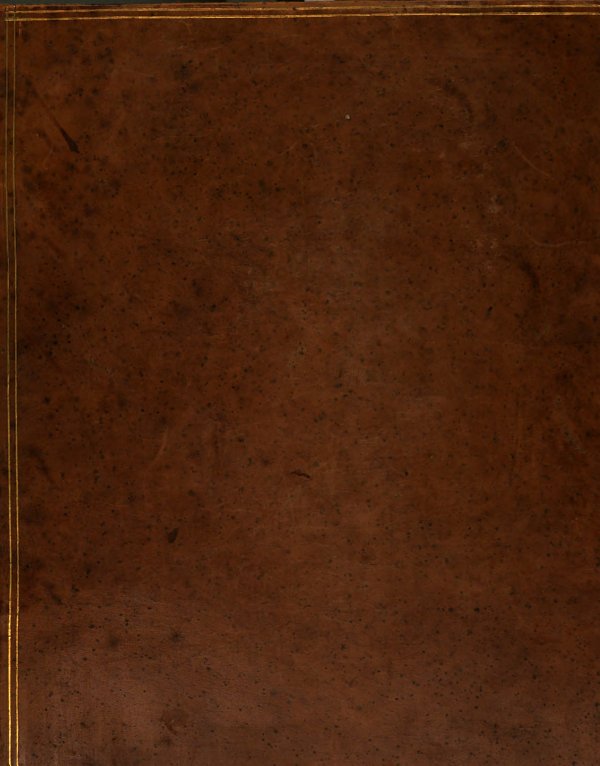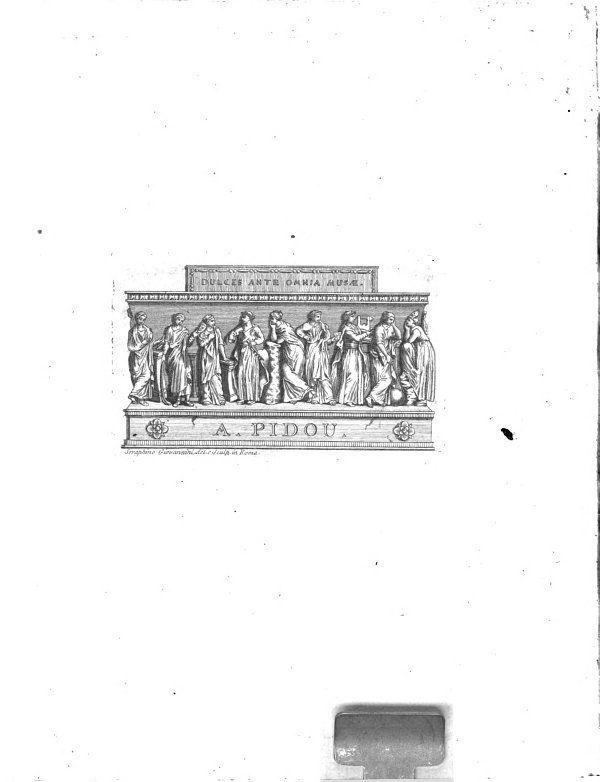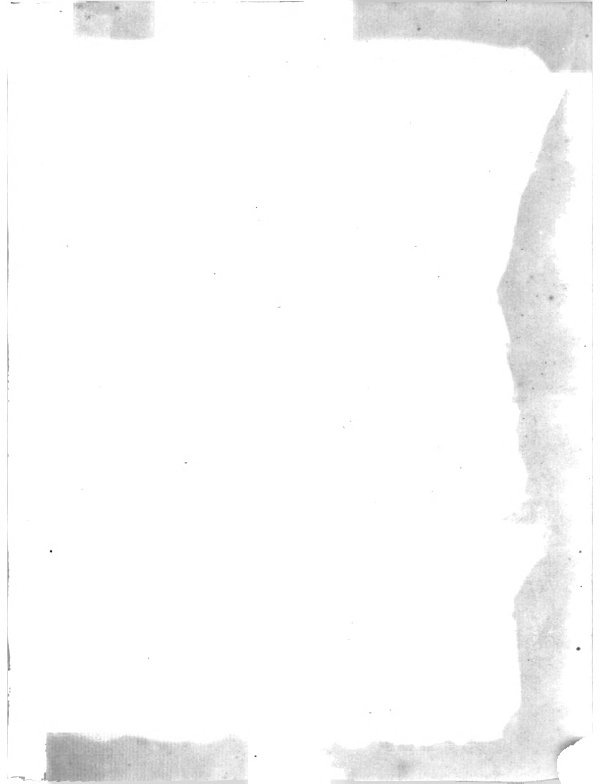This is a digital copy of a book that was preserved for generations on library shelves before it was carefully scanned by Google as part of a project to make the world's books discoverable online. See the back of the book for detailed information.
A NEW TRANSLATION;
WITH
A PRELIMINARY DISSERTATION,
AND
NOTES
CRITICAL, PHILOLOGICAL, AND EXPLANATORY.
By ROBERT L O W T H, D. D.
F. R. Ss. Lond. And Goetting.
Lord Bishop Of London.
LONDON;
Printed by J. Nichols;
For J. Dodsley in Pall-mall, and T. Cadell in the Strand.
M DCC LXX VIII.
T O
THE KING.
S I R,
A N attempt to set in a just light the writings of the most sublime and elegant of the Prophets of the Old Testament might merit the honour of Your Majesty's gracious acceptance, were the execution in any degree answerable to the design. If it has at all succeeded, it is in a great measure to be ascribed to a particular attention to that most
important,
ii DEDICATION.
important, but too long neglected, part of Sacred Criticism, which, to the honour of this Nation, and to the universal benefit of the Christian Church, hath been set forward, and is now greatly advanced, under Your Majesty's distinguished Patronage. Your Majesty'^ taste and judgement have induced You to encourage every part of Science tending to the benefit of Your people and the glory of Your age: and Your Majesty's piety hath prompted You to promote in the first place every thing that may contribute to the advancement of true Religion, and to favour every well meant defign, which has that great object in view.
This consideration encourages me to beg leave humbly to approach Your Majesty with this small offering, accompanied with the truest sentiments of duty, affection, and gratitude;
and and with the most fervent prayers to Almighty God for Your Majesty's happiness, private and public, temporal and eternal.
Your Majesty's
most dutiful Subject
and most devoted Servant
R. London
THE
PRELIMINARY DISSERTATION.
THE design of the following Translation of Isaiah is not only to give an exact and faithful representation of the words and of the fense of the Prophet, by adhering closely to the letter of the text, and treading as nearly as may be in his footsteps; but, moreover, to imitate the air and manner of the author, to express the form and fashion of the composition, and to give the English Reader some notion of the peculiar turn and cast of the original. The latter part of this design coincides perfectly well with the former: it is indeed impossible to give a just idea of the Prophet's manner of writing, otherwise than by a close literal Version. And yet, though so many literal versions of this Prophet have been given, as well of old as in later times; a just representation of the Prophet's manner, and of the form of his composition, has never been attempted, or even thought of, by any Translator, in any language whether antient or modern. Whatever of that kind has appeared in former translations, (and much indeed must appear in every literal translation,) has been rather the effect of chance than of design, of necessity than of study: for what room could there be for study or design in this cafe, or at least for success in it, when the translators themselves had but a very imperfect notion, an inadequate or even false idea, of the real character of the author as a writer; of the general nature, and of the peculiar form, of the composition:
It has, I think, been universally understood, that the Prophecies of Isaiah are written in Prose. The style, the thoughts, the images, the exprestions, have been allowed to be Poetical, and that in the highest degree: but that they are written in Verse, in Measure, or Rhythm, or whatever it is that distinguishes, as Poetry, the composition of those books of the Old Testament which are allowed to be Poetical, such as Job, the -Psalms, and the Proverbs, from the Historical books, as mere Prole; this has never been supposed, at least has not been at any time the prevailing opinion. The opinions of the learned concerning Hebrew Verse have been various; their ideas of the nature of it vague, obscure, and imperfect: yet still there has been a general persuasion, that some books of the Old Testament are written in Verse; but that the writings of the Prophets are not of that number.
The learned Vitringa fays ', that Isaiah's composition has a fort of numbers, or measure; " esie orationem suis adstrictam numeris:" he means, that it has a kind of Oratorial number, or measure, as he afterward explains it; and he quotes Scaliger, as being of the fame opinion, and as adding, that " however upon this account it "could not rightly be called Poetry \" About the beginning of this century, Herman Von der Hardt3, the Hardouin of Germany, attempted to reduce Joel's Elegies, as he called them, to Iambic Verse; and, consistently with his hypothesis, he affirmed, that the Prophets wrote in Verse. This is the only exception I meet with to the universality of the contrary opinion. It was looked upon as one of his Paradoxes, and little attention was paid to it. But what was his success in making out Joel's Iambics, and in helping his leaders to form in consequence a more just idea of the character 'of
'Prolegom. in Iesaiam, p. 3.
* Scaliger, Animadvers. in Chron. Euscbii, p. 6.
3 See Wollii Biblioth. Hebr. Tom. ii. p. 169.
the
the Prophetic Style, I cannot say; having never seen his treatise on that subject.
The Jews of early times were of the fame opinion, that the books of the Prophets are written in Prose; as far as we have any evidence of their judgement on this subject. Jerom 1 certainly speaks the fense of his Jewish Preceptors as to this matter. Having written his Translation of Isaiah from the Hebrew Verity in Stichi, or Lines divided according to the cola and commaia, after the manner of Verse; which was 1 often done in the Prophetic writings, for the fake of perspicuity; he cautions his reader, " not to mistake it for Metre; "as if it were any thing like the Psalms, or the writings of Solomon; "for it was nothing more than what was usual in the copies of "the prose works of Demosthenes and Cicero." The later Jews have been uniformly of the fame opinion: and the rest of the learned world seem to have taken it up on their authority, and have generally maintained it.
But if there should appear a manifest conformity between the Prophetical Style, and that of the Books supposed to be Metrical; a conformity in every known part of the -Poetical character, which equally discriminates the Prophetical and the Metrical Books, from those acknowledged to be Prose: it will be of use to trace out and to mark this conformity with all possible accuracy; to observe how far the peculiar characteristics of each style coincide; and to fee, whether the agreement between them be such, as to induce us to conclude, that the Poetical and the Prophetical character of style and composition, though generally supposed to be different, yet are really one and the same.


